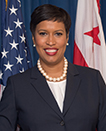Washington, DC
DPR Extends Select Outdoor Pools and Spray Parks Through First Week of September
DPR Customer Service: (202) 673-7647
DPR Aquatics Office: (202) 671-1289
DPR Media Contact: John Stokes: (202) 288-7275; [email protected]
Rachel Newman: (202) 340-2910; [email protected]
(Washington, DC) All District Spray Parks, along with Upshur, Francis and Oxon Run pools were scheduled to close this week, however due to this weeks expected record high temperatures, the DC Department of Parks and Recreation (DPR) announced today that these selected aquatic facilites will remain open through the week.
All Spray Parks will remain open until Sunday, September 7; operating daily from 10 am to 7 pm.
Upshur pool (4300 Arkansas Avenue, NW) will remain open until Friday, September 5; operating daily from 3 pm to 8 pm.
Francis pool (25th & N Street, NW) will remain open until Friday, September 5; operating daily from 3 pm to 8 pm. (Francis will be open on Tuesday.)
Oxon Run pool (501 Mississippi Avenue, SE) will remain open through Friday, operating daily from 3 pm to 8 pm; as well as Saturday and Sunday from 12 noon to 6 pm. Oxon Run will close for the season at 6 pm on Sunday, September 7.
East Potomac pool (972 Ohio Drive, SW) will continue to operate on their normal schedule.
Doggie Day Swim, will take place as scheduled on Saturday, September 6 from 12 noon to 4 pm at Randall, Francis and Upshur pools.
According to the National Weather Service, the District of Columbia is expected to experience extremely high temperatures and humidity this week. Residents are encouraged to stay inside if possible.
All indoor pools will continue to observe their regular schedules. Please note that yearly indoor pool maintenance is underway. The Therapeutic Recreation and Wilson Aquatic facilities are currently offline/closed. Please go to "Indoor Pools Close for Maintenance" press release for indoor pool closures schedule.
_________
The District's Recreation Centers, Public Libraries and Senior Wellness Centers are all great places to beat the heat and are open to the public. Many of these locations provide not only a cool place to rest, but also provide water and indoor activities.
DC Water and DC Fire and EMS officials want to remind the public that unauthorized fire-hydrant use is unlawful, dangerous and damaging.
Please visit DC HSEMA's website for updates, tips and more.
Beat-the-Heat Tips
It is recommended that those with lung disease, asthma, small children and the elderly stay inside if at all possible to avoid unhealthy outdoor air.
In the event of extreme heat, you should take the following precautions:
- Stay indoors as much as possible.
- Turn on the air conditioner or fan.
- DO NOT leave children or pets in vehicles.
- Pay special attention to young children, the elderly and the mentally ill.
- Drink plenty of water. Do not drink liquids that contain alcohol or large amounts of sugar.
- Wear light-colored, lightweight and loose-fitting clothes.
- Apply sunscreen at least 20 minutes before going outside (SPF 15-30 is best).
- Limit exposure to the sun (the sun is most powerful between 10 am and 3 pm).
- Watch for heat cramps, heat exhaustion and heat stroke.
- If you do not have access to a cool-temperature location, visit one of the District’s cooled indoor facilities.
- People with respiratory problems, or illnesses should please stay indoors.
-
Regularly check on and pay special attention to:
- Infants and young children
- People aged 65 or older
- People who have a mental illness
- Those who are physically ill, especially with heart disease or high blood pressure
- Call 311 for detailed information about cooling center locations.
Residents should also be reminded that these hot and humid conditions can cause many medical problems, such as heat stroke and exhaustion. The Centers for Disease Control and Prevention (CDC) consider heat stroke to be the most serious heat-related illness. According to CDC, “heat stroke occurs when the body becomes unable to control its temperature: the body's temperature rises rapidly, the sweating mechanism fails, and the body is unable to cool down. When heat stroke occurs, the body temperature can rise to 106 degrees Fahrenheit or higher within 10 to 15 minutes. Heat stroke can cause death or permanent disability if emergency treatment is not given.”
Symptoms of heat stroke:
- Hot, dry skin (no sweating)
- Hallucinations
- Chills
- Throbbing headache
- High body temperature
- Confusion/dizziness
- Slurred speech
Groups at greatest risk for heat-related illness:
- Infants
- Children up to four years of age
- People 65 years of age and older
- People who are overweight
- People who are ill or on certain medications.
Groups at greatest risk should be monitored carefully, and their environments should be regulated. The CDC recommends that those at greatest risk be closely monitored and visited at least twice a day to view for possible signs of heat exhaustion or heat stroke. Infants and young children should also be closely monitored.
For up-to-date information on the weather, please visit weather.gov.
For information on DPR events, facilities, programs & activities, be sure to follow
DPR on Facebook, Twitter, Join our Mailing List, Register for a Program,
Sign up for Text/Email Alerts or visit the DPR Website.


